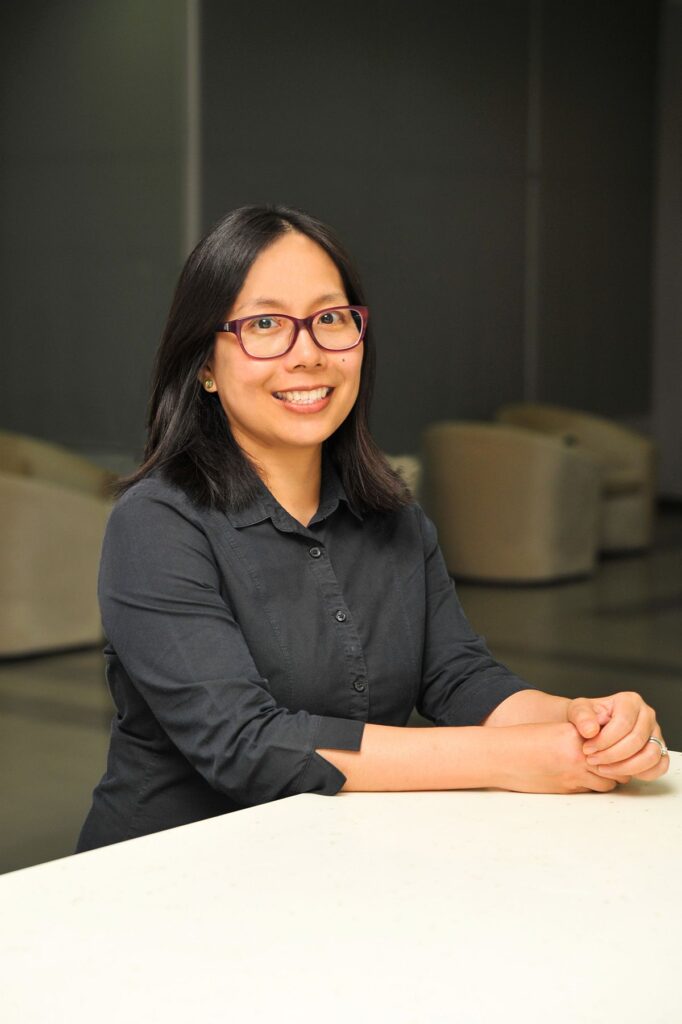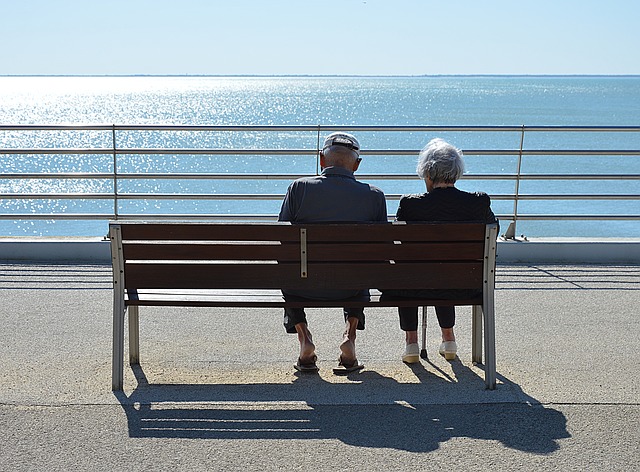KUALA LUMPUR, Sept 28 – A Catholic charity organisation has urged the government to play a bigger role in providing aged and social care, amid rising numbers of homeless elderly people in a worsening economy.
Angela Francis, vice president of the National Society of St. Vincent de Paul Malaysia (SSVP), said the ageing crisis is “already upon us”, with high living costs exacerbating the caregiving problem as more elderly are forced to fend for themselves.
“This is not only impacting the low-income families but has also started to put great pressure on the lower middle-income families to take care of their elderly. The increasing number of elderlies we now encounter are homeless and with health problems,” Francis told CodeBlue recently in an email response.
SSVP has embarked on a project to build a retirement home in Taiping, Perak, the country’s oldest state. Perak has the highest old-age dependency ratio at 13.2, higher than the national median of 9.7, according to the federal census in 2020.
The old-age dependency ratio is the ratio of older people aged 65 and older – an age when they are generally economically inactive – per 100 individuals of working age from 15 to 64.
The state also has one of the highest crude death rates at 7.1 per 1,000 population in 2020, second only behind Perlis at 7.7 per 1,000 population. Crude death rate is the total number of deaths per 1,000 of a particular population during a given time interval.
Construction of SSVP’s Ozanam Retirement Village (ORV) on a plot of land leased out by the Penang Diocese is underway, with completion targeted by the end of 2023.
The ORV will offer fully furnished rooms (single or double occupancy), four meals a day, housekeeping and self-service laundry facilities, social and recreational activities, rooms equipped with a nurse call system, a gated and guarded community, free internet, shuttle services, visiting doctor for consultation, and transportation for hospital visits within Taiping.
The retirement home is expected to house up to 200 persons, catering for non-disabled older persons aged 55 and above.
“The idea of moving into a retirement village at old age is slowly gaining traction. However, this is mainly concentrated within the high and middle-upper-income groups as they have the wealth and savings to consider this option.
“On the other hand, we do not see this option being explored by the lower income groups. This is primarily due to affordability,” Francis said.
“We must gradually move towards offering more affordable aged care facilities to the lower income groups before they can start to explore this as an option and allocate savings towards it.
“We will be requiring more aged care facilities in the near future due to the shrinking size of the family unit [as seen] over the last five decades, which has always played the primary role of being caregivers to the elderly within the family setting,” Francis added.
The ORV, the first of its kind project for the Catholic charity organisation, is estimated to cost RM17.5 million, with a monthly operating fee of RM200,000.
“This being a joint initiative with the Catholic Church, Diocese of Penang, the church has leased out the land to us with no cost entailed. The construction of the ORV is currently being funded by ‘advance rentals’ collected from those who have booked units and sponsors who have taken up units to support our initiative to house non-paying residents.
“As for the monthly operating expenses, the funding is supported mainly from the monthly fee collected from the paying residents. We will also be approaching individuals and corporate donors to help defray some of the cost for those who fall under the special category of non-paying residents,” Francis said.
As part of its social responsibility, the management will make provision for those who cannot afford the cost by allocating 30 per cent of the occupancy rate at ORV to the less fortunate. SSVP mostly assists families in the bottom 40 per cent (B40) income group.
Advance rental covers 28 years of right to occupy for a one-off payment of RM98,000. Paying residents can also pay a monthly fee of RM1,500 per room or RM2,400 for twin sharing. An additional RM100 per month is charged for air conditioner-fitted rooms.
At full capacity, the SSVP plans to hire an average of 15 full-time staff, with the rest of the ORV’s workforce coming from paid volunteers.
“We intend to give an opportunity to the non-paying residents to take up the volunteer positions so that they can earn an allowance and not feel that they are solely dependent on the management for their every need.
“This will also give them a sense of dignity, that they are contributing towards the community they live in, even though they cannot afford to pay the monthly fee,” Francis said.
Despite having corporate sectors and local non-governmental organisations (NGOs) that play vital roles in social welfare contribution, Francis said more resources could have been allocated to provide affordable health care and aged care services to senior citizens.
“There was no political will to capitalise on the nation’s resources during the country’s booming period by engaging various collaboration between private and public sectors under one umbrella to map out and implement a well-structured aged care plan,” Francis said.
The government should allocate federal resources toward building more public hospitals and expanding geriatric departments. “There must be robust initiatives to have more facilities and services nationwide to cater to a bigger capacity.”
Through the Department of Social Welfare, the government could also expand its current initiative of providing monthly financial assistance of RM300 to assist poor elderly by raising the amount given, broadening the target group, and increasing the number of recipients receiving financial aid, Francis said.
Francis added that aged care should be addressed from a multi-disciplinary approach, with the Ministry of Health (MOH) at helm. Currently, elderly and social care – managed as “welfare” – fall under the purview of the Women, Family and Community Development Ministry (KPWKM).
“The bulk of problems arising from age care stem from prevalent health conditions as people are living longer. If their health is managed properly, they will enjoy a better quality of life.
“This, in turn, will place them in a stronger position to take care of themselves and even contribute back to society and their families rather than being a burden,” Francis said.
‘We Need A Minister For Older Persons’

Prof Dr Tan Maw Pin, a professor of geriatric medicine at the University of Malaya, called for a rethink of how elderly care is approached.
“The government (currently under KPWKM) will need to reconsider the constant badgering of adult children for not paying for their older parents’ care or not caring for their older parents.
“The increasing need for social care provisions arises due to population ageing and hence, an increased number of people within the population who have multiple medical problems, dependency, and increased susceptibility to degenerative conditions, such as dementia and osteoarthritis.
“This means that older people are heavier health care users and the increased risk of disability and functional dependency with increasing age also contributes heavily to our care bill,” Dr Tan told CodeBlue when contacted.
Dr Tan said Malaysia has a higher level of disability among the elderly population compared to developed economies. However, in terms of life expectancy at birth, the country ranks almost at par with other countries of similar income brackets.
A 2015 study by Dr Suzana Shahar, head of the Centre of Healthy Ageing and Wellness at Universiti Kebangsaan Malaysia, found that Malaysia’s prevalence of healthy ageing was at 11 per cent, below Singapore (17.8 per cent) and Thailand (27.5 per cent), but was about the same as the United States (10.9 per cent) and slightly higher than Europe (8.5 per cent).
Her study showed that only about one out of 10 Malaysian senior citizens experienced “successful” or healthy ageing, which refers to an absence of illnesses like cancer, diabetes, cardiovascular disease, or stroke; no functional limitation; good cognition or mental health; no depression; good quality of life; and good self-perception on health.
About 16 per cent experienced mild cognitive impairment, while 73 per cent had “usual ageing”, which means extrinsic factors alone increase the effects of ageing, unlike “successful ageing”, in which external factors play a neutral or positive role.
Dr Tan said the impact of Malaysia’s ageing crisis could already be seen in the major lengthening of hospital waiting lists for clinic visits and elective surgery, and acute bed shortages across all public hospitals.
“What is perhaps not that widely publicised is the social care crisis. All long-term care providers (home-based and institutions) are experiencing severe staff shortages.
“This has led to increased cost of care since they have to pay more for the caregivers, but a reduction in quality of care, as there is still not enough staff.
“In addition, those who used foreign domestic workers to provide care, a large number of these workers have returned to their home countries, and there are no visas granted to let new workers in to speak of,” Dr Tan said.
When asked if MOH should take over social and aged care from KPWKM, Dr Tan said there is a need for a “Minister for Older Persons” instead.
“The connotation of lumping social care for older persons under the Ministry of Women suggests an outdated, misogynistic government which is not only male-dominated but sends out a poor message that care for older persons is entirely the woman’s job,” Dr Tan said.
“The MOH taking over social care is also a terrible idea, as the social care budget is minuscule as it is, health departments will also prioritise health.”
For enquiries about the Ozanam Retirement Village (ORV) by the National Society of St. Vincent de Paul Malaysia (SSVP), contact their main office based in Petaling Jaya at 03-79564531 or email [email protected].








